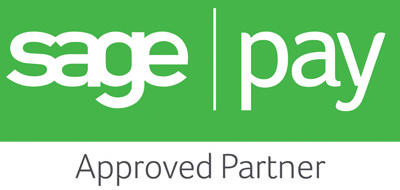Are you EATing well?
We're not talking diets here, but Expertise, Authoritative and Trustworthy. The EAT acronym sums up what Google (and other search engines) look at to decide where in the SERP (search engine results page) your content appears for a given search term. Expertise is gauged by how well your content (whether that's blog posts, product write-ups or the main text of your homepage and top-level pages) answers the questions your potential customers need the answer to. A high volume of traffic combined with a long average period of browsing within your site also helps Google assess whether you're an expert or not.
Authoritativeness is gauged by the number of links to your content from other highly regarded websites. The more people are linking to your content, either on their own websites or via social media, the more authoritative your content appears. Trustworthiness also relies on the quality and number of links back to your content, as well as your online reputation. Negative reviews associated with your company or brand affect don't just put off potential customers; they can also stop your content being returned in search results in favour of your competitors.
You need to embody the spirit of EAT in your website content to ensure that Google, and other search engines, view your content favourably and put you at the top of the SERP for your desired keywords.
To be seen as an Expert you must ensure your keywords are relevant to your customers, or, more accurately, that you understand the keywords your customers are using, and create content that answers their question and adds value. Long tail keywords, those which use 4 words (or more) are worth creating content around, as these long tail keywords are often the searches which Google delivers a featured snippet for. The more featured snippets come from your content, the more favourably it is seen.
You can increase the amount of time people spend on your website (which Google sees as a positive) with some careful information structuring; whereas a high rate of short visits indicates that your content isn't serving the answers your customers are looking for.Breaking content down into shorter pieces, perhaps across several pages, lengthens the customer visit but this only works if all that content is relevant. Sending users across to other sections of your site, or to pages where they can download valuable content, will keep them on your site for longer.
Being Authoritative means being seen as an expert within your industry by your peers. The number of links back to your content from it being shared on social media, as well as being linked to from other websites and blogs, shows that it is relevant, useful, and the sort of thing other people are happy to recommend.It's similar to word-of-mouth, in that the more recommendations (links back) that are made the more respect the content (and by extension your company) gets. A programme of link building can quickly become organic when your reputation takes off.
Trustworthiness is a similar beast and relies on backlinks and a generally favourable reputation, created through avoiding negative reviews and through sentiment analysis – this is where algorithms check the tone of the conversation around your company or product. The more negative chatter there is, the lower your content will appear in SERPs.
When creating content and looking at your wider marketing strategy, EAT is the mind-set you need to adopt to ensure your content performs well for you.
